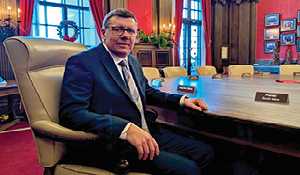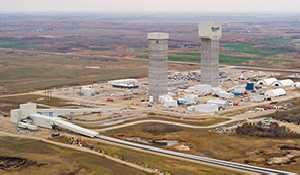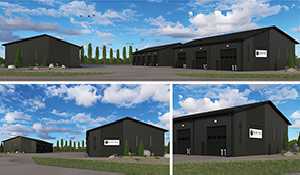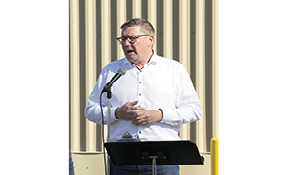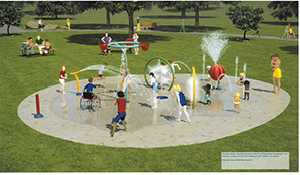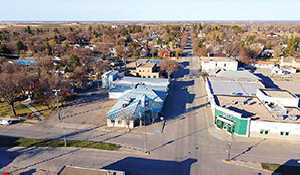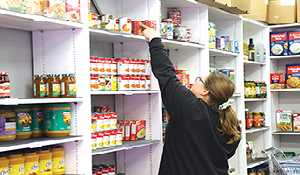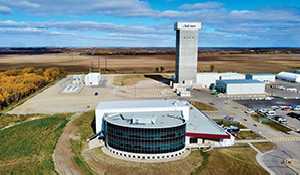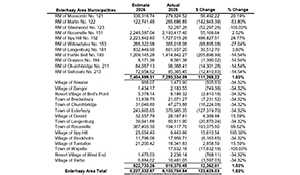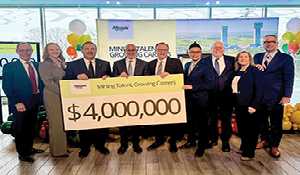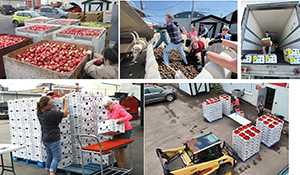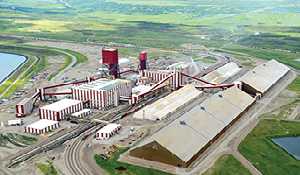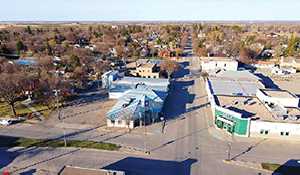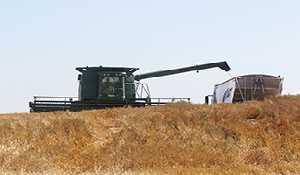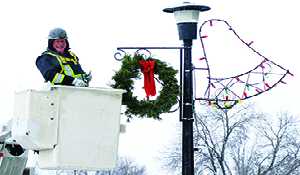Provincial budget, federal budget worlds apart
March 26, 2019, 1:55 am
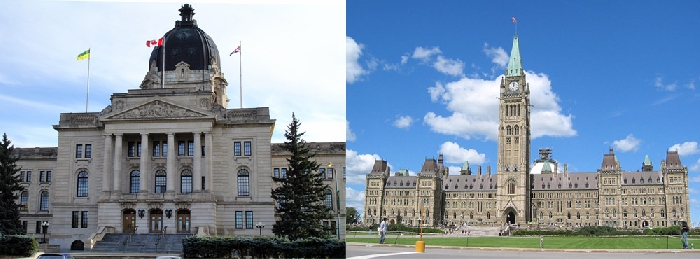

The Saskatchewan government and the federal government released budgets last week that couldn’t be more different.
The provincial budget includes a surplus,while the federal government includes $23 billion in new spending.
Moosomin MLA Steven Bonk says the most important aspect of this year’s budget is the fact that it is balanced.
“The most important part as far as I’m concerned is balance,” he said.
“As you know, this has been a three-year plan to get back to balance and we had to make some very difficult choices three years ago and I want to thank the people of Saskatchewan for helping us in this endeavor to put us in this position now where we are going to be running a surplus this year.
“I think this budget is the right balance for Saskatchewan. We’re investing in key areas like mental health, infrastructure projects, and vulnerable families, but it’s a balance that will keep our economy going yet keeping our expenditures under control.
Bonk says the average person won’t notice much change as a result of the new budget.
“I think they can rest assured knowing there is some stability. There are no new tax increases and we have managed to maintain our triple A credit rating, which means the repayments we have to make are going to be less in the future which allows us to save more on the services that people in Saskatchewan look forward to and deserve.”
He noted that the budget includes additional funding for mental health and addictions.
“I think one thing that might be of particular interest to our constituency is the increased supports for mental health and addictions support services,” he said. “This is something we’ve heard throughout the province and in our consultation, that there should be increased funding for mental health, and you will see our commitment as a government to mental health.
“Just recently I was able to attend the opening of the hospital in North Battleford, which is the largest single investment in mental health in Saskatchewan’s history, and we’re also providing more spots for addictions counselling which is something we’ve also heard loud and clear that we could be doing a better job on. We’ve listened and we’re working towards that goal of helping as many people as we can.
“There’s also additional funding for highway safety, which is something I’ve heard a lot about, particularly in Moosomin itself. There’s also more funding for education. We’ve heard some of the concerns, then we’ve increased the funding available for education.
“There is $1.9 billion in this budget for operating funding for school divisions, and that is an increase of over $26 million. We are living up to our word and we’re doing what we said we’d do, and a nice thing about this too is this is newfound money, that there will not be any changes to the education property tax rate, and we’re also building some new schools this year which is also one of the cornerstones of our government’s commitments to education.”
The highway intersection improvements are a reaction in part to the Humboldt Broncos tragedy.
“The Humboldt tragedy was not solely responsible but was a catalyst for us to take a deeper look at this,” Bonk said. “There is $65 million in this budget, actually, for enhanced intersection safety, and that’s going to go toward things like signage and sight lines and lighting and safety features like rumble strips at intersections throughout the province. We are also going to be doing about $60 million of twinning and passing lanes in the province, but unfortunately none of that is going to be in the Moosomin constituency this year.”
He said there has been a small increase in the agriculture budget for this year.
“Agriculture funding is relatively maintained,” he said. “There was a slight increase in the budget for agriculture and that mostly goes to enhance coverage with crop insurance, but I think the farmers should rest assured that they won’t see much of a difference other than the increased coverage in crop insurance. The rest of their programs will stay the same.”
Bonk says that multiple competing priorities make it difficult to balance the budget.
“It was very difficult of course to balance the budget because we have the problem of having 1,000 excellent projects come across our desk and we have to narrow it down every year to only a few of them that we can achieve. But we had set ourselves up on this path to a balanced budget three years ago and it was a systematic approach to getting back to balance, and we just had to maintain our resolve and stick to the plan, and to that I give a lot of credit to our former premier Brad Wall as well as our new premier Scott Moe just for their determination, which resulted in getting the budget back to balance.”
Bonk said the government plans to increase the surplus going forward.
“We have projected surpluses in the next three years. We’re tending to budget on a longer term cycle, and I think what this does it lets you plan for the future so that you can build in some consistencies for the unknown, and by keeping our debt ratio healthy and our credit rating healthy, it allows us to manage our debt in a way that is allowing us to pay for the services that we have in this province.”
One element in the budget is elimination of some deductions to the potash production tax. The province expects to take in an extra $117 million from the potash production tax as a result of the changes.
“The potash production tax contains two elements,” Bonk said, “the profit tax and the base payment. The profit tax is intended to provide a payment based on the profitability production of potash. What we were finding was that the companies were able to use a lot of tax write-offs and tax credits against this production tax and we’re just changing some of those rules so that this tax will be doing what it was intended to do, and to levy a fee.
“The base payment right now sits at about $12.33 per tonne but we haven’t been achieving that in the last few years because of all the write-offs that the companies were able to use, so we’re just trying to tighten up some of these tax structures and have them achieve what they were intended to.”
Bonk said he’s happy to see the balanced budget after the hard choices that had to be made in 2017.
“It was a good budget and it’s nice to see it coming together after three years of hard work,” he said. “I was chosen by the premier to second the 2017 budget where we had to make some very difficult decisions, so I feel a little bit personally invested and very happy to see that we’ve come out the other side where we intended to be.”








